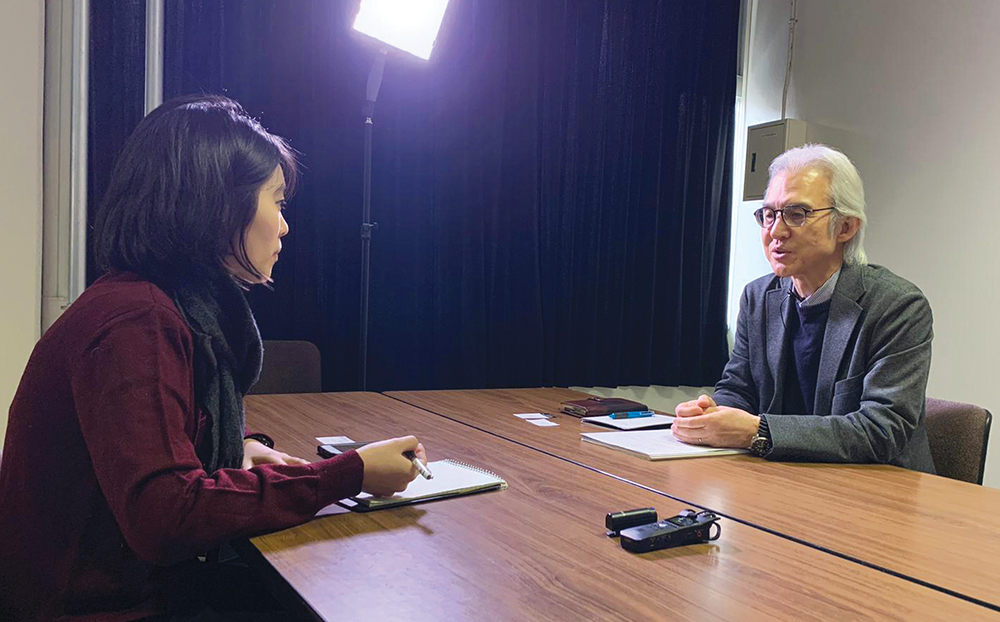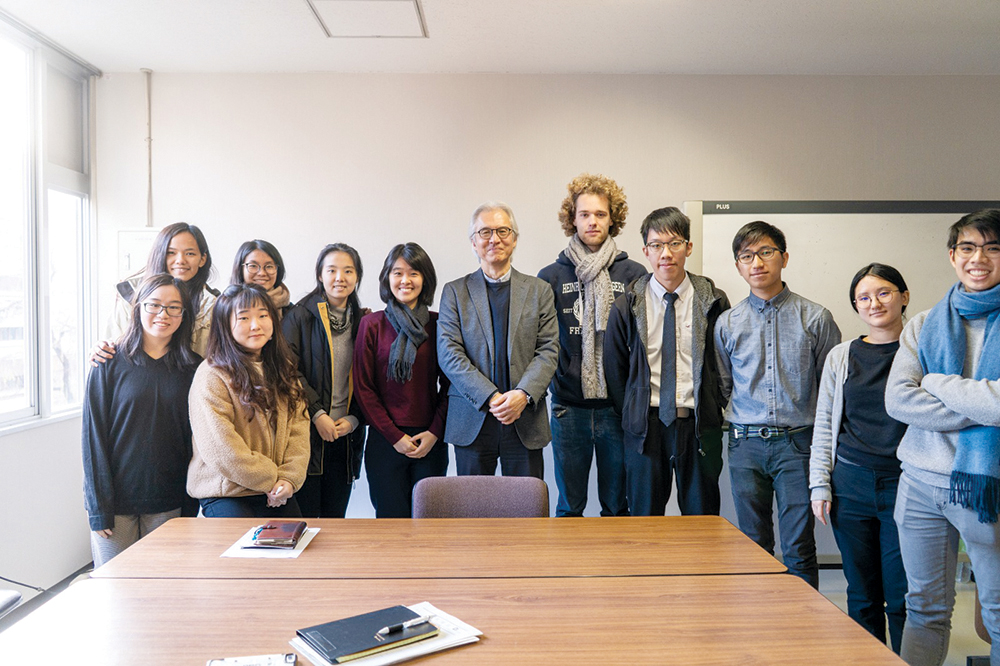November 2020 | Volume 22 No. 1
Animal Attractions
News stories about the atrocities inflicted on whales by the Japanese whaling industry inspired final-year Biological Sciences student Andy Vu Ka-hei to dig deeper into the problem. But the more he learned, the more he realised that whaling is not quite as clearcut an issue as he had supposed. Livelihood, political and legal issues are involved, too, and there is a story to be told.
“Whaling is a deeply fascinating topic. It is not only an environmental problem, but equally a people problem because the livelihoods of people in the industry are at stake. It’s a political problem because there is large political backing behind the industry – the political seat of former Prime Minister Shinzo Abe is in the whaling centre of Shimonoseki. It’s painted as part of Japanese ‘culture’, but only 4,000 tonnes of whale meat were consumed there in 2015.
“Whaling has also been caught up in international relations because foreign governments pressure Japan to stop. It’s a legal problem because it has been taken to international courts. And Japan has made it a scientific problem by setting up research institutions to produce pro-whaling research.
“As I learned more, I was dragged into a debate about the issue with myself. When I discussed it with my peers and academic advisors, they encouraged me to conduct an experiential learning project on the issue,” he said.
Learning to compromise
That project has involved creating a documentary and written article about whaling in Japan that received the top prize of HK$10,000 in the 2020 HKU Horizons Experience Award and funding support from the Gallant Ho Experiential Learning Fund.
The project brought together 20 students from the Science, Arts, Engineering, Social Sciences, Business and Economics and Law Faculties, who did an extensive literature review, travelled to Japan, and conducted dozens of interviews with scholars, government agencies, businesses, NGOs and the general public in and outside of Japan.
The documentary is being finalised in preparation for submission to international film competitions. But apart from this output, the project has also provided the students with valuable learning experiences, particularly on working in a foreign culture.
“Cultural barriers and a lack of understanding on local social norms posed a challenge to us throughout our project,” said Andy. “We spent sleepless nights exchanging ideas about how questions should be asked of interviewees the following day. While our media team were interested in phrasing our questions to get specific answers, our translation team highlighted cultural norms. These struggles were often met with compromise.”
Sometimes they misjudged, for instance, by not being mindful enough of arriving on time for an interview, which unsettled the interviewee, and by using drones to film in sensitive locations, which attracted attention from police and local authorities.
“The soft skills we gained – working as a team, being culturally intelligent, resolving conflicts while enjoying the ride – are things that are often overlooked or undervalued in education, yet they may be the defining factor that determines whether we get an interview, more funding or even just finish a project,” he said.

An interview with Professor Joji Morishita (right), a highly prominent figure in the Japanese whaling industry, known for pushing forward Japan’s international pro-whaling diplomacy.

Professor Joji Morishita (sixth from right) and the project team.
Staying motivated
The whaling project also had a spinoff project to survey students in Hong Kong, Macau and Japan about the use of endangered animals in traditional Chinese medicine (TCM). The topic was suggested by the Japan Wildlife Conservation Society, who wants to be able to present the results at conferences, and the two projects were combined into one by the Gallant Ho fund.
Given the data-driven nature of the project, Andy invited Rohan Rajpal, a final-year Computer Science student who has a deep interest in animals, to join them. Under his leadership, the students managed to do surveys in Japan and Macau, but the COVID-19 outbreak put a halt to their Hong Kong survey.
Nonetheless, they gained useful experience working with an NGO, drafting questions and speaking with groups of students outside of Hong Kong and surveying them. The bulk of questionnaires were done in Japan, where students had a low awareness of endangered animal content in TCM but also reported low usage of TCM by themselves and their families.
“We were still able to educate students in Japan about the issue and our own participants also became more knowledgeable,” Rohan said. “This was one of the first big projects I have organised by myself and it was a great learning experience. I dealt with things that I would not normally have had to deal with in an institutional setting, such as solving disputes between local and non-local students, keeping people motivated and keeping them disciplined at the same time. More importantly, it was comforting to know I was helping animals in some way.”
Rohan was motivated to join another Gallant Ho project, but it was also halted by COVID-19. “These are opportunities to do something that has impact, rather than be guided by academic results. I hope other students will be motivated to join efforts in future to protect animals,” he said.
The soft skills we gained – working as a team, being culturally intelligent, resolving conflicts while enjoying the ride – are things that are often overlooked or undervalued in education, yet they may be the defining factor that determines whether we get an interview, more funding or even just finish a project.

MR ANDY VU KA-HEI

